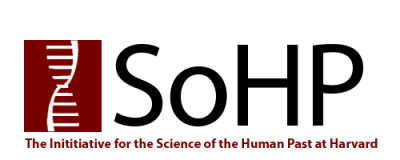 On February 16th, Johannes Krause, Director of the Max Planck Institute for the Science of Human History (MPISHH, Jena, Germany) visited Harvard University to deliver two inaugural lectures for the Max Planck-Harvard Research Center for the Archaeoscience of the Ancient Mediterranean (MHAAM). The first lecture, in the “ What’s New in the Fall of the Roman Empire” series, focused on Krause’s work tracing the phylogeny of the plague bacillus (Yersinia pestis), by comparing the genomes of bacteria found in the remains of plague victims from three major pandemics in the 6th, 14th and 18th centuries. Krause offered insights not only in the evolution of the bacillus, but also in patterns of human migration throughout the Mediterranean basin and the Eurasian continent, as far back as 5500 years ago. Increased mobility, economic activity and trade in the Middle Ages contributed to the spread and persistence of Yersinia pestis, suggesting that the same might have occurred in prior pandemics as far back as the Neolithic. His research posits the existence of a reservoir of the disease in Europe—likely in rodents—between the Black Death and ca. 1720. On February 16th, Johannes Krause, Director of the Max Planck Institute for the Science of Human History (MPISHH, Jena, Germany) visited Harvard University to deliver two inaugural lectures for the Max Planck-Harvard Research Center for the Archaeoscience of the Ancient Mediterranean (MHAAM). The first lecture, in the “ What’s New in the Fall of the Roman Empire” series, focused on Krause’s work tracing the phylogeny of the plague bacillus (Yersinia pestis), by comparing the genomes of bacteria found in the remains of plague victims from three major pandemics in the 6th, 14th and 18th centuries. Krause offered insights not only in the evolution of the bacillus, but also in patterns of human migration throughout the Mediterranean basin and the Eurasian continent, as far back as 5500 years ago. Increased mobility, economic activity and trade in the Middle Ages contributed to the spread and persistence of Yersinia pestis, suggesting that the same might have occurred in prior pandemics as far back as the Neolithic. His research posits the existence of a reservoir of the disease in Europe—likely in rodents—between the Black Death and ca. 1720.
|

|
On the following day, Mark Elliott, Vice Provost for International Affairs, opened the first MHAAM Harvard Town Hall Meeting by highlighting the objectives of the new center and the methodological affinities between Harvard and the Max Planck Institute in their broad support of interdisciplinary scholarly inquiry. Historian and great friend of Harvard Malcolm Wiener gave a welcome address to the ca. 100 attendees in the Thompson Room, Barker Center. Lord Colin Renfrew, Disney Professor of Archaeology emeritus at Cambridge, followed with remarks on themes in Mediterranean archaeology. Philipp Stockhammer (Ludwig-Maximilians-Universität and MPISHH) then highlighted some case studies in human migration from the Bronze Age Mediterranean. Krause’s second lecture focused on human migration, comparing an unprecedented amount of highly resolved data derived from sequenced human genomes, obtained from remains from multiple burial sites throughout Eurasia. David Reich, Dr. Iosif Lazaridis and Ms. Eadaoin Harney (HMS, SoHP) then provided an overview of the progress of the Reich lab’s research in human genomes and patterns of mobility and relatedness in the ancient Mediterranean. |
| The program also included a town hall meeting, with lively discussion among Harvard colleagues and students, as well as two brainstorming sessions with MHAAM members and other participants, including Prof. Cyprian Broodbank (Oxford), Prof. Kyle Harper (U. of Oklahoma), Prof. Noreen Tuross (HEB & SoHP), Prof. Joyce Chaplin, Prof. Daniel Smail, Prof. Michael McCormick, Dr. Alexander More (all of Harvard History & SoHP), as well as graduate and undergraduate students from HMS, History, Celtic, HEB and EPS. |

|
